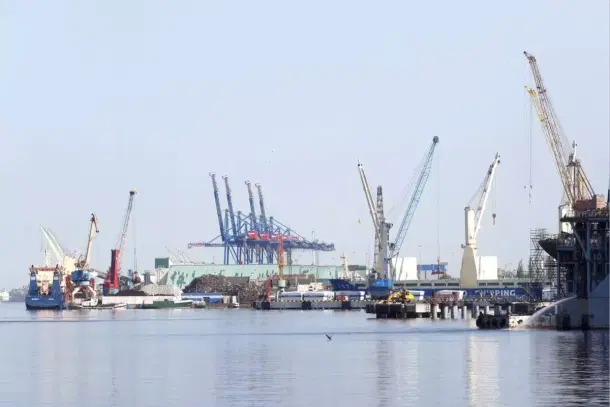Infrastructure
India’s Strategic Link To Afghanistan, Central Asia At Risk As US Revokes Chabahar Port Sanctions Exemption
Swarajya Staff
Sep 19, 2025, 09:59 AM | Updated 09:59 AM IST
Save & read from anywhere!
Bookmark stories for easy access on any device or the Swarajya app.


The United States has decided to end the special waiver that allowed foreign participation in Iran’s Chabahar Port, a change that could directly affect India’s long-term role in the project, India Today reported.
The waiver will lapse on 29 September, closing a carve-out first created in 2018.
The waiver was introduced under the Iran Freedom and Counter-Proliferation Act (IFCA) to permit India and others to continue work at Chabahar without risking American penalties.
In its 16 September announcement, the US State Department said the rollback is part of Washington’s broader campaign to step up pressure on Tehran.
It warned that once the exemption ends, companies and individuals linked to the port may fall under the scope of sanctions.
The decision comes just over a year after India signed its first overseas port operating deal — a 10-year agreement with Iran’s Port and Maritime Organisation to run Chabahar through Indian Ports Global Limited (IPGL).
The pact involved an upfront commitment of about $120 million and an additional $250 million in credit for supporting infrastructure.
For New Delhi, Chabahar has been more than an investment project. Since it bypasses Pakistan, the port is a vital access point to Afghanistan and Central Asia, and is integrated with the International North-South Transport Corridor reaching Russia and Europe.
India has already used it to send food aid and supplies to Afghanistan.
The port also plays into India’s competition with China. Chabahar sits barely 140 km from Gwadar, the Pakistani port developed by Beijing. Limited access here could reduce India’s ability to counterbalance Chinese influence in the Arabian Sea region.
Back in 2018, Washington had kept Chabahar outside the net of reimposed sanctions, arguing it supported Afghanistan’s connectivity.
By revoking the exemption now, the US has left India facing the difficult task of protecting its financial stake while managing relationships with Washington, Tehran, and other regional partners.
According to the State Department, the decision also reflects a push to cut off "illicit financial networks that sustain the Iranian regime and its military activities."
Please click here to add Swarajya as your preferred and trusted news source on Google.
Also Read:US Sanctions Eight Indian Companies, 5 Nationals Over Iran Oil Trade Links





